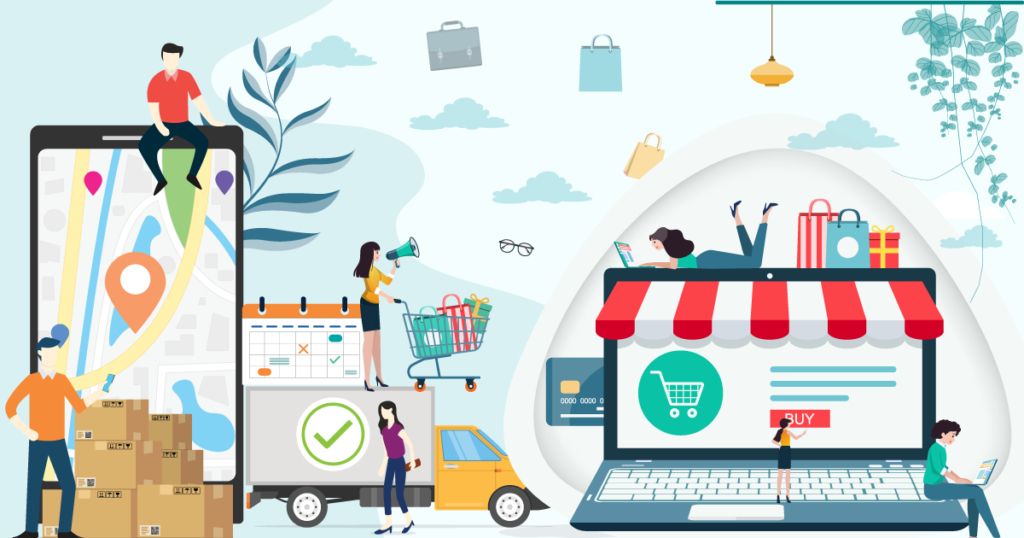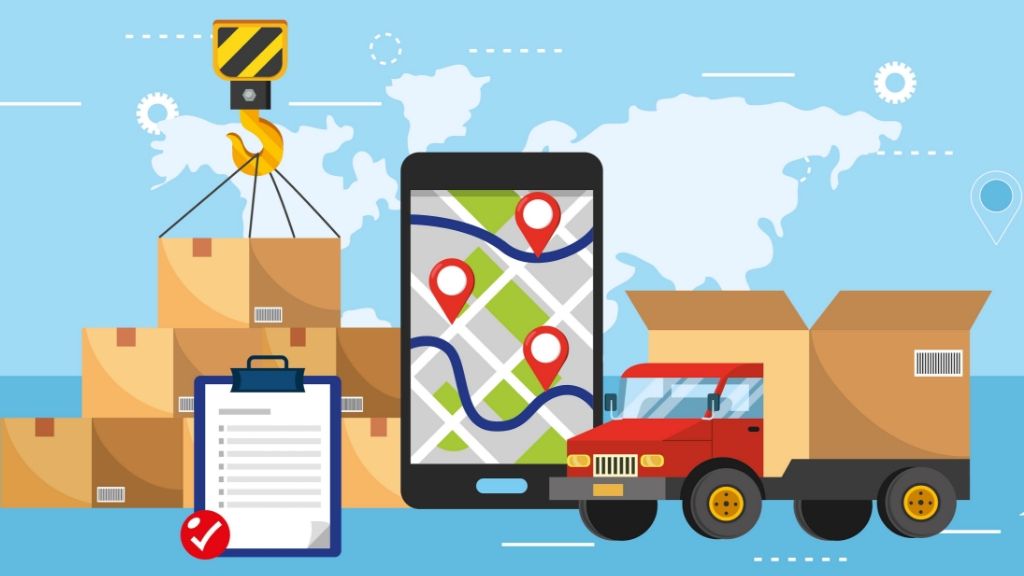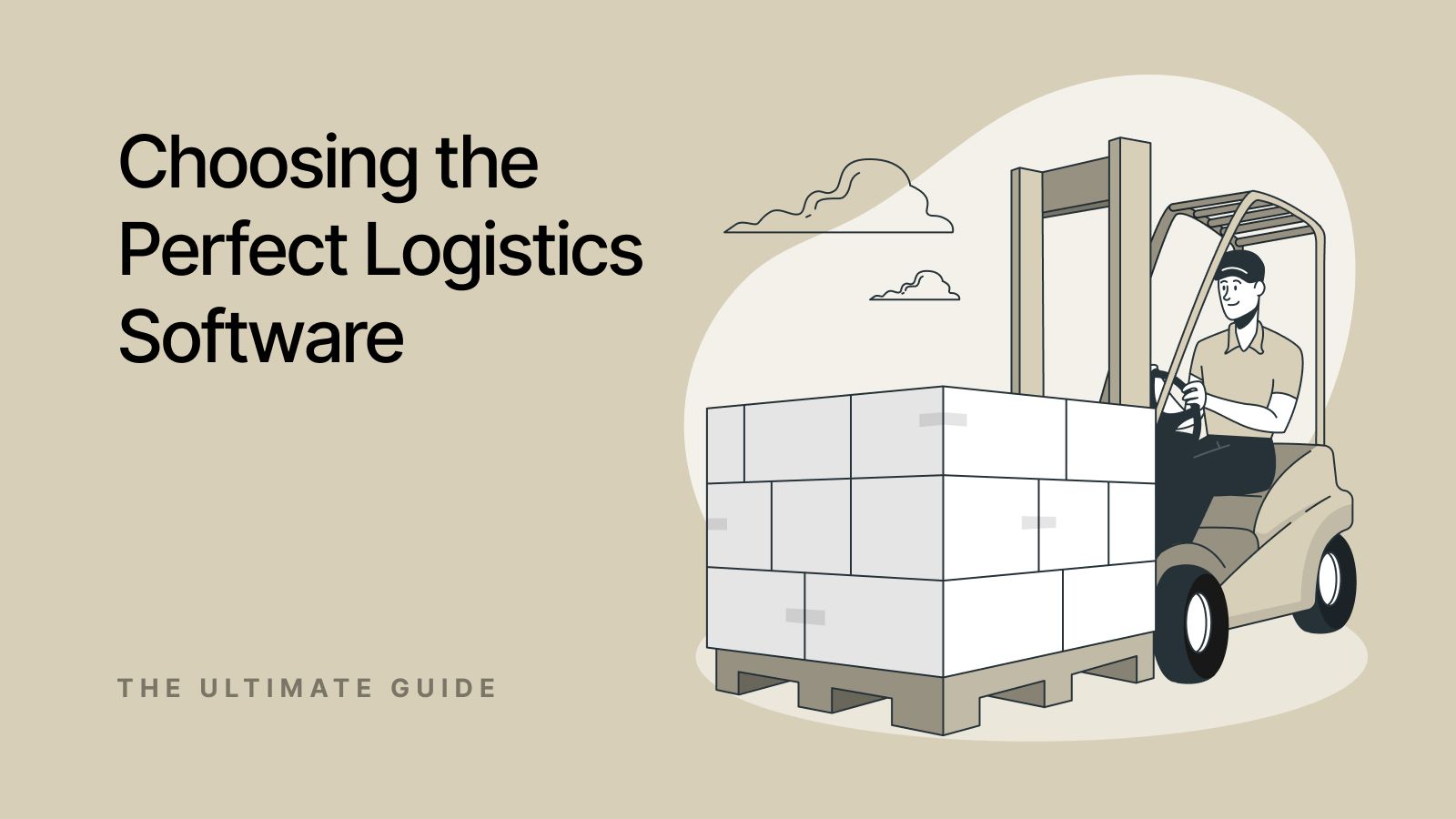The way that transportation and logistics operate has been significantly impacted by technological breakthroughs. The flow of products, services, and information from the place of origin to the customer and back is automated using logistics management software. The construction of logistics management software accelerates and improves logistics, transforming the administration of production, materials, freight shipping, commodities, and sales orders.
What is Software for Logistics Management?
The movement of goods from the point of production to the point of consumption by customers or businesses is referred to as logistics. The supply chain segment that deals with planning and execution to make it easier to store and transport goods and services to customers is referred to as logistics management. Numerous logistics and supply chain organizations manage the procedures of freight transportation, distribution, and tracking.
The usage of logistics management software by logistics organizations helps to streamline and ease these complex procedures. It supports the management of information flow (emails, letters, alerts), shipping and delivery coordination, monitoring of packing, tracking of warehouse activities, and even inventory management.

Logistics
How Should I Pick the Best Logistics Software?
It might be challenging to implement new logistics monitoring software in your company. When choosing the best logistics management software development, one may keep in mind the things listed below.
Client-Multiple Architecture
The multi-client design of the logistics tracking system is required in order to handle different stakeholders and clients.
Forecasting
A crucial component of logistics software is the capacity to forecast using the information at hand. With effective scheduling, IT keeps the supply chain intact. In the long run, this feature lowers the possibility of merchandise being out of supply and raises consumer happiness.
Order Control
It makes it possible for orders to be processed quickly. It simplifies the whole process, including order placing and delivery. The technology also enables taking into account several factors like mixed pricing, the order's type (flammable/fragile), etc.
Transport Administration
Another crucial component of logistics is transport management, where technology aids in planning, carrying out, and enhancing the actual movement of products on the ground. The system also handles the required paperwork and shipping compliance.
Analytics for Logistics
Since the logistics monitoring software oversees so many important daily company operations, it has access to a vast quantity of business data. As a result, it may provide sophisticated insights into the operation of the firm.
Inventory Management
Logistic software must have inventory tracking as a basic feature. It offers a centralized management system for tracking inventories in real-time.
GPS Monitoring
The usage of GPS will provide real-time fleet updates and enable drivers' accurate position tracking. The ability to see the whole logistical process benefits businesses.
Friendly User Interface
For software that is intended to be used often by numerous personnel, a user-friendly UI/UX is crucial. After all, the ultimate goal of adopting technology is to streamline company procedures. It ought to make it simple to access important capabilities.
A Logistics Software's Advantages

Logistics
Greater Efficiency
By improving the operations involved in shipping, storing, and delivering, logistics software may aid firms in becoming more productive. Employees have more time to focus on other projects since less time is spent on physical labor as a consequence.
Improved Client Satisfaction
Utilizing logistics software improves client satisfaction and service. Statista projects that by 2025, the worldwide market for supply chain management software will have grown to a size of over 10.17 billion U.S. dollars.
For instance, it provides personnel with up-to-date inventory information so consumers can see where their things are. They may also get the most recent information through email or text messages.
Improved Marketing
Thanks to logistics software, businesses may easily package particular items that go well with the other goods supplied by the retail chain. Efficiently promoting products and setting their prices competitively, aids businesses in growing their sales. The efficiency of shipping and delivery operations has also enhanced, which lowers opportunity costs.
Conclusion
While using ready-made programs could seem to be more economical and time-efficient, taking use of logistics software that is precisely customized to meet your specific demands is often the best option. Because they can be readily expanded and improved to meet changing demands and seamlessly integrated with internal systems when the outputs are tailored to your company's unique procedures.
For a logistics business, tailored software solutions can provide a competitive edge by optimizing operations, streamlining supply chain processes, and enhancing overall efficiency to meet customer demands more effectively.
